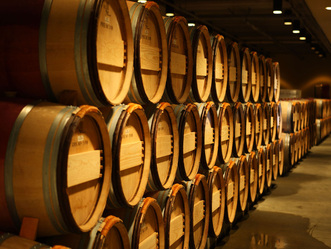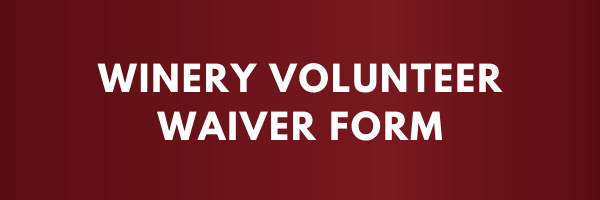|
During harvest, bottling and special events/festivals, many wineries utilize volunteers to help. While this can be a cost efficient form of adding extra labor, it also presents your winery with additional liability. By allowing volunteers to help with your winery operations, you become liable for any bodily injury or property damage that occurs to or in conjunction with the volunteers. In order to protect yourself, we suggest having each volunteer sign a volunteer waiver form or "Prospective Release, Indemnity, & Hold Harmless Agreement." We've drafted up a form you can download below and encourage you to use it the next time your winery utilizes volunteers.
*Please consult your attorney before utilizing this form to ensure it follows effective legal protocols and language.
0 Comments
Many breweries, wineries, & distilleries have often rent their facilities for use by the public, including birthday parties, work events, reunions, etc. While these are typically good sources of revenue and are also a good public relations tool, they do present additional liability exposures to your business. For breweries, wineries, & distilleries that lease their facilities to others, we recommend the use of a contract which details the terms and conditions of the rental and also provides that the lessee/rental party will hold the distillery harmless in the event of injury or other damages related to the use of the premises. When reviewing Rental Agreements, many contracts are not appropriately worded with needed protection or are incorrectly completed, often with provided spaces left blank. This document offers risk management guidelines to assist your organization in reducing your liability exposure. A sample rental contract is included with a hold harmless agreement that may be used in whole or as an example for your organization. Whether you use the sample agreement or develop your own, you should have it reviewed by an attorney. If you choose to create your own form, consider including the following points:
Any forms/contracts should be reviewed by an attorney for compliance with local laws and suitability to the particular needs of the organization involved. Once developed, the contract should be used for all rentals, even if the distillery is being used gratis or by a member. A copy of the contract should be given to the lessee and the original kept on file.
 Why does your winery need insurance? Winery tours are incredibly popular these days and a great way to spend a weekend, especially in Texas and New Mexico. However, with each wine special event — whether a tasting, tour, catered dinner or wedding — there are risks that should be insured. If the event is hosted on the winery’s property, there are “two big things,” according to Peter Liesenfelt, account executive for Wine American Insurance Administrators. “If someone at a tour or event slips on the floor and falls, it is covered under general liability. The other thing that comes up is liquor liability, where there is a risk of someone drinking too much getting into an accident. Laurie Infantino, president of the Insurance Skills Center, agrees that a winery needs both a commercial general liability policy and a liquor liability policy. The CGL protects against bodily injury for things like slips, while the liquor liability policy protects against negligence in serving liquor either to a minor or to someone who becomes too intoxicated and causes an accident. Insuring wineries becomes more complicated when the special events are more than just a tasting, insurance experts say. For example, if the winery is taking guests on a tour on a mechanized car or train, or has amusement rides, there’s a bigger exposure. Or, if the winery has a house on its property that it rents out to guests, there is additional risk. If an outside caterer is hired for a special event, wineries should collect certificates of insurance naming the winery as an additional insured and making sure coverage is in force for general liability, workers’ compensation and even auto insurance, advises George Hunt, an agent with United Valley Insurance Agency. “You want to make sure they have auto in case they back over someone with their vehicle while delivering the food,” for example, “and make sure they have workers’ comp for workers doing the serving so that if someone gets hurt, the person can’t come back against the winery,” Hunt adds. These are just a few of the basic reasons why your winery needs insurance. To learn more about all the insurance coverages Regnier Insurance can provide for your winery, please visit www.regnierinsurance.com/wineries or feel free to contact us at [email protected] or (800) 252-9435. |
WinStar
|
|
© 2024 WinStar Insurance Group
13625 Ronald W. Reagan Blvd. Building 3, Suite 100 Cedar Park, TX 78613 |
IMPORTANT NOTE: This Web site provides only a simplified description of coverages and is not a statement of contract. Coverage may not apply in all states. For complete details of coverages, conditions, limits and losses not covered, be sure to read the policy, including all endorsements, or prospectus, if applicable. Coverage CANNOT be bound, amended, or altered by leaving a message on, or relying upon, information in this Website or through E-Mail.
Licensed & doing business in the following states only: Texas, New Mexico, & Oklahoma
Licensed & doing business in the following states only: Texas, New Mexico, & Oklahoma


 RSS Feed
RSS Feed


